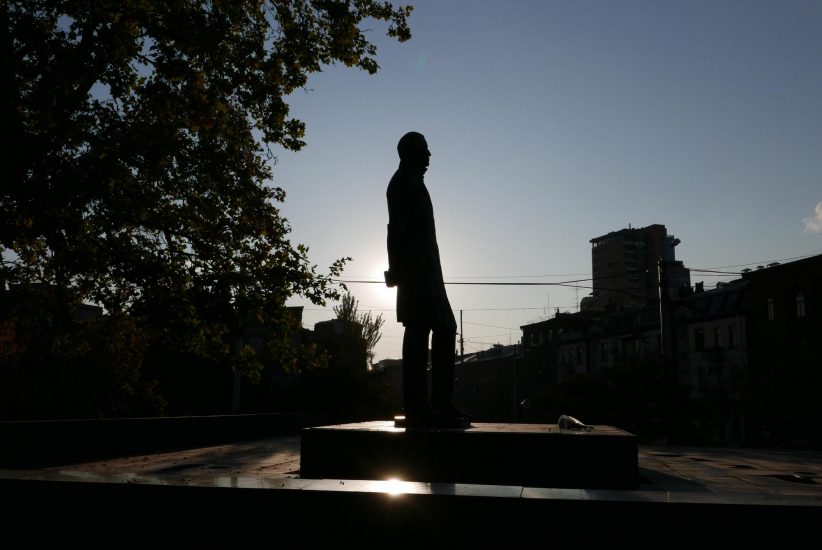By Mark Dovich
On December 3, Shahen Harutyunyan, the son of the chairman of the Armenian ultranationalist Tseghakron Party and the grandson of a prominent Soviet Armenian dissident, turned himself in at a Yerevan police station, having vandalized a statue in the city center dedicated to noted Russian diplomat and writer Alexander Griboyedov the evening prior.
The incident was quickly publicized in the Armenian and Russian press and drew swift condemnation from the Russian Embassy in Yerevan and the Armenian Prime Minister’s office. In an official statement, the Russian Embassy denounced the act of vandalism and reiterated its commitment to the “brotherly, allied relations of Russia and Armenia, which have deep historical roots.” Armenian Prime Minister Nikol Pashinyan’s spokesperson stated that “manifestations of vandalism should not have any place in our society.”
Alexander Griboyedov, in his capacity as the Russian Empire’s ambassador to Qajar Iran, assisted in the writing of the 1828 Treaty of Turkmenchay, which concluded the Russo-Persian War and by which Qajar Iran ceded much of the territory of modern-day Armenia to the Russian Empire. Griboyedov also played a leading role in facilitating the resettlement of tens of thousands of Iranian Armenians in the ceded territories. In addition to his diplomatic activities, Griboyedov is widely remembered today for his writing, particularly his play Woe from Wit.
In a Facebook post, Harutyunyan explained that he defaced the statue in response to an incident in November, when a city councillor in the Russian city of Armavir vandalized a plaque dedicated to Garegin Nzhdeh located in the courtyard of a local Armenian Apostolic church. The plaque was later dismantled entirely. The Armenian Embassy in Moscow and Armenian Foreign Minister Zohrab Mnatsakanyan condemned that incident.
Garegin Nzhdeh was a prominent military and political figure during the time of the short-lived First Republic of Armenia (1918-1920), when he spearheaded an armed resistance against Turkish and, later, Bolshevik forces. He is revered as a national hero by many Armenians for his resistance activities, and he is widely credited for ensuring Armenian control over Syunik region in southern Armenia.
In recent years, numerous Russian politicians and government officials have expressed their discomfort with Nzhdeh’s association with Nazi Germany during World War II. In 2016, Russian Foreign Ministry spokesperson Maria Zakharova commented on the placement of a statue to Nzhdeh in central Yerevan by publicly stating the Russian government’s opposition to “any revival, glorification, or other manifestations of Nazism.”
















